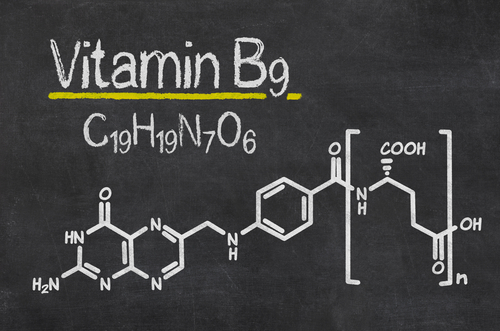What is Folate? Why is it Important to Your Health?
 Folate is a B vitamin that is also called B9. It is also referred to as Vitamin M, and Vitamin Bc.
Folate is a B vitamin that is also called B9. It is also referred to as Vitamin M, and Vitamin Bc.
Foods that are naturally high in folate include leafy vegetables (such as spinach, broccoli, and lettuce), okra, asparagus, fruits (such as bananas, melons, and lemons) beans, yeast, mushrooms, meat (such as beef liver and kidney), orange juice, and tomato juice.
Folateis needed for the proper development of the human body. It is involved in producing the genetic material called DNA and in numerous other bodily functions. It helps prevent changes to DNA.
Folate is used in combination with other B vitamins. B vitamins work together
Folate is necessary to activate the absorption of B12.
Vitamin B12’s primary use by the body is aiding in the production of red blood cells, and in helping to maintain the health of the central nervous system. Both vitamins together help nerves to function properly. Absorption of B1 into the body requires adequate supplies of vitamin B6, B12 and B9 (folate).
Folate is one of the B vitamins necessary to convert homocysteine to cysteine. Homocysteine levels are associated with a risk of heart disease & kidney disease. Cysteine is one of the components needed to create Glutathione which is the body’s master antioxidant and is found in every body cell.
Deficiencies of Folate (B9) include ulcerative colitis, liver disease, alcoholism and kidney dialysis and anemia. Deficiencies are connected to colon cancer and cervical cancer. It is used to prevent heart disease and stroke.
Folate deficiency is also associated with memory loss, Alzheimer’s disease, hearing loss, eye disease – macular degeneration (AMD), osteoporosis, sleep problems, depression, nerve pain, muscle pains, AIDS and gum infections. A deficiency of folate is also linked to depression.
Folate is also needed with certain medications as the drug will deplete the body of folic acid. Check Drug Muggers which tells you which medications deplete the body of which nutrients. If you take medications, you need to read this book.
Folate can interact with certain drugs. It can result in the efficacy of the drug being lessened. You should always check with your pharmacist to see if you can take folate with the drug that you have been prescribed. (Pharmacists have a database to check for interactions of herbs, other drugs and some vitamins).
What is the difference between Folate and Folic Acid? (also called B9)
Folate is the natural B9 found in food. Folic acid is a synthesized version of vitamin B9 that is added to processed foods and the common version used in supplements.
Make sure your B vitamin supplement includes Folate. Here is one called Nerve Support that we have researched and recommend.
Sign up to receive the MCVitamins Newsletter!
Up-to-date info on the latest health-related news happening in the world
(available in English only)

